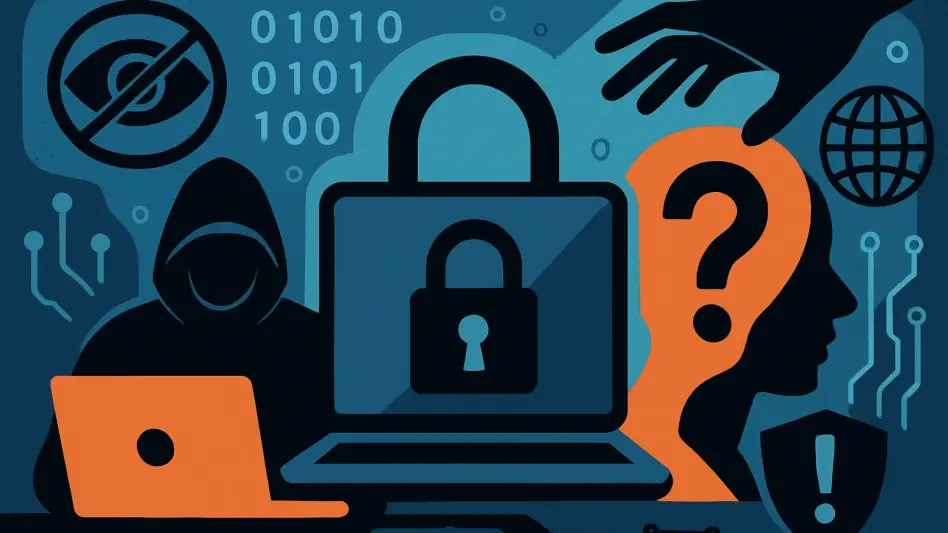In an era where cyber threats loom larger than ever, Canada’s latest legislative effort to fortify its digital defenses has ignited a fierce debate that cuts to the heart of privacy and security. Known as Bill C-8, this reintroduced cybersecurity legislation, formerly dubbed Bill C-26, is currently under intense scrutiny in the House of Commons. Its stated goal is to enhance national protection against online dangers by equipping the government with broad authority over telecommunications networks and private entities. Yet, this ambitious framework has drawn sharp criticism for provisions that many believe could trample on individual rights and introduce alarming vulnerabilities. From secret government orders to the potential weakening of encryption, the bill has united a diverse coalition of experts, industry leaders, and civil society advocates in opposition. As discussions unfold, the stakes couldn’t be higher—balancing the urgent need for robust cybersecurity with the preservation of fundamental freedoms remains a formidable challenge.
Sweeping Powers and the Privacy Dilemma
Bill C-8 proposes to grant the Canadian government unprecedented powers to access sensitive personal information, a move that has set off alarm bells among privacy advocates. This includes the ability to collect data such as communication records, location details, and other private metrics without the safeguard of judicial oversight in many instances. The Privacy Commissioner of Canada has issued stark warnings about the potential for invasive data practices, suggesting that such unchecked authority could lead to widespread misuse or mishandling of personal details. Additionally, the Intelligence Commissioner has cast doubt on whether these measures align with constitutional principles, pointing to a troubling lack of legal boundaries. This erosion of privacy protections has sparked fears that individual rights might be sidelined under the guise of national security, leaving citizens vulnerable to surveillance without recourse or transparency. The implications are profound, as public trust in governmental handling of personal data hangs in a precarious balance amidst these legislative proposals.
Beyond the collection of data, the bill introduces mechanisms that could further deepen privacy concerns through secretive mandates. Provisions within the legislation allow for the issuance of confidential orders to telecommunications providers, often referred to by critics as a “spy clause.” These directives, which can be enacted without public knowledge or accountability, might compel companies to disclose user information or modify their systems in undisclosed ways. Such opacity not only undermines the democratic principle of transparency but also raises the specter of government overreach. Without clear checks and balances, there is a tangible risk that these powers could be abused, potentially targeting specific groups or individuals without justification. This secretive approach has fueled a growing unease among Canadians, who may remain unaware of how their personal information is being accessed or utilized, intensifying the call for robust safeguards to protect civil liberties in the face of expanding state authority.
Encryption Risks and Digital Vulnerabilities
A particularly contentious element of Bill C-8 lies in its potential to compromise encryption, a critical pillar of online security that protects everything from personal messages to financial transactions. The legislation could empower government officials to mandate that telecommunications providers install backdoors or weaken encryption protocols, creating intentional flaws in systems designed to keep data safe. Cybersecurity experts, including those affiliated with Citizen Lab, have highlighted the catastrophic risks this poses, warning that such vulnerabilities could be exploited by malicious actors like hackers or hostile foreign entities. The consequences could ripple across sectors, endangering not just individual users but also businesses and government networks that rely on secure communications. This approach, critics argue, fundamentally contradicts the goal of enhancing cybersecurity by introducing weaknesses that threaten the very infrastructure the bill seeks to defend.
Industry stakeholders have also voiced significant apprehension about the practical and ethical ramifications of these encryption-related provisions. Representatives from the Canadian Telecommunications Association have pointed out that complying with government orders to alter security standards could place an undue burden on providers, forcing them to prioritize state directives over user safety. Such mandates risk undermining the integrity of Canada’s digital economy, as trust in secure online systems is paramount for commerce and innovation. The broader consensus among tech leaders is that while cyber threats demand serious attention, creating deliberate security gaps is a misguided strategy that could backfire spectacularly. Instead of bolstering defenses, these measures might hand adversaries the tools to inflict greater harm, highlighting the urgent need for alternative approaches that strengthen rather than weaken the digital landscape. The debate underscores a critical tension between governmental control and the technical realities of maintaining robust cybersecurity.
Secrecy, Accountability, and Public Trust
Central to the controversy surrounding Bill C-8 is its heavy reliance on secrecy, a feature that many argue undercuts the democratic values of openness and accountability. The bill permits numerous actions to be taken behind closed doors, with little to no public oversight of how these powers are exercised. This “secrecy by default” framework means that critical decisions impacting personal data and online security could occur without citizens ever being informed, fostering a climate of suspicion and distrust. Critics contend that such a lack of transparency is antithetical to the principles of a free society, where governmental actions should be subject to scrutiny and debate. The absence of mechanisms to ensure accountability raises pressing questions about how far these powers might stretch and whether they could be wielded in ways that infringe on rights without justification or remedy.
Civil society organizations have been vocal in amplifying public discontent with this opaque approach, mobilizing significant grassroots efforts to demand change. Groups like OpenMedia have reported thousands of letters sent by concerned citizens to Members of Parliament, urging revisions to address the bill’s shortcomings on transparency and privacy. This public outcry reflects a broader frustration with the government’s apparent reluctance to amend problematic elements carried over from the earlier iteration of the legislation. The persistent inclusion of secretive provisions, despite widespread criticism, has only deepened calls for reform to ensure that cybersecurity measures do not come at the expense of democratic oversight. As debates continue, the challenge lies in crafting a framework that tackles genuine cyber threats while maintaining the trust of the populace through clear, accountable governance. Without such balance, the legislation risks alienating the very people it aims to protect.
Navigating the Path Forward
Reflecting on the intense debates that surrounded Bill C-8, it became evident that the legislation, as initially drafted, grappled with significant flaws that threatened both privacy and digital security. The expansive governmental powers, potential encryption compromises, and secretive nature of the provisions had united a broad spectrum of critics in their call for substantial amendments. These discussions, held in the House of Commons, underscored a critical juncture where the balance between national security and individual freedoms was fiercely contested. The warnings from privacy commissioners, cybersecurity experts, and civil society had painted a sobering picture of the risks posed by unchecked authority and intentional vulnerabilities, leaving an indelible mark on the legislative process.
Looking ahead, the path forward demanded actionable reforms to address the concerns that had dominated the discourse. Incorporating robust privacy safeguards, explicitly prohibiting measures that weaken encryption, and mandating transparency in government actions emerged as essential steps to align the legislation with democratic values. Engaging with stakeholders to refine the bill offered a chance to create a balanced framework that genuinely strengthened cybersecurity without sacrificing rights. As future considerations took shape, the focus shifted to learning from past missteps, ensuring that Canada’s approach to digital defense prioritized both security and liberty in equal measure.








